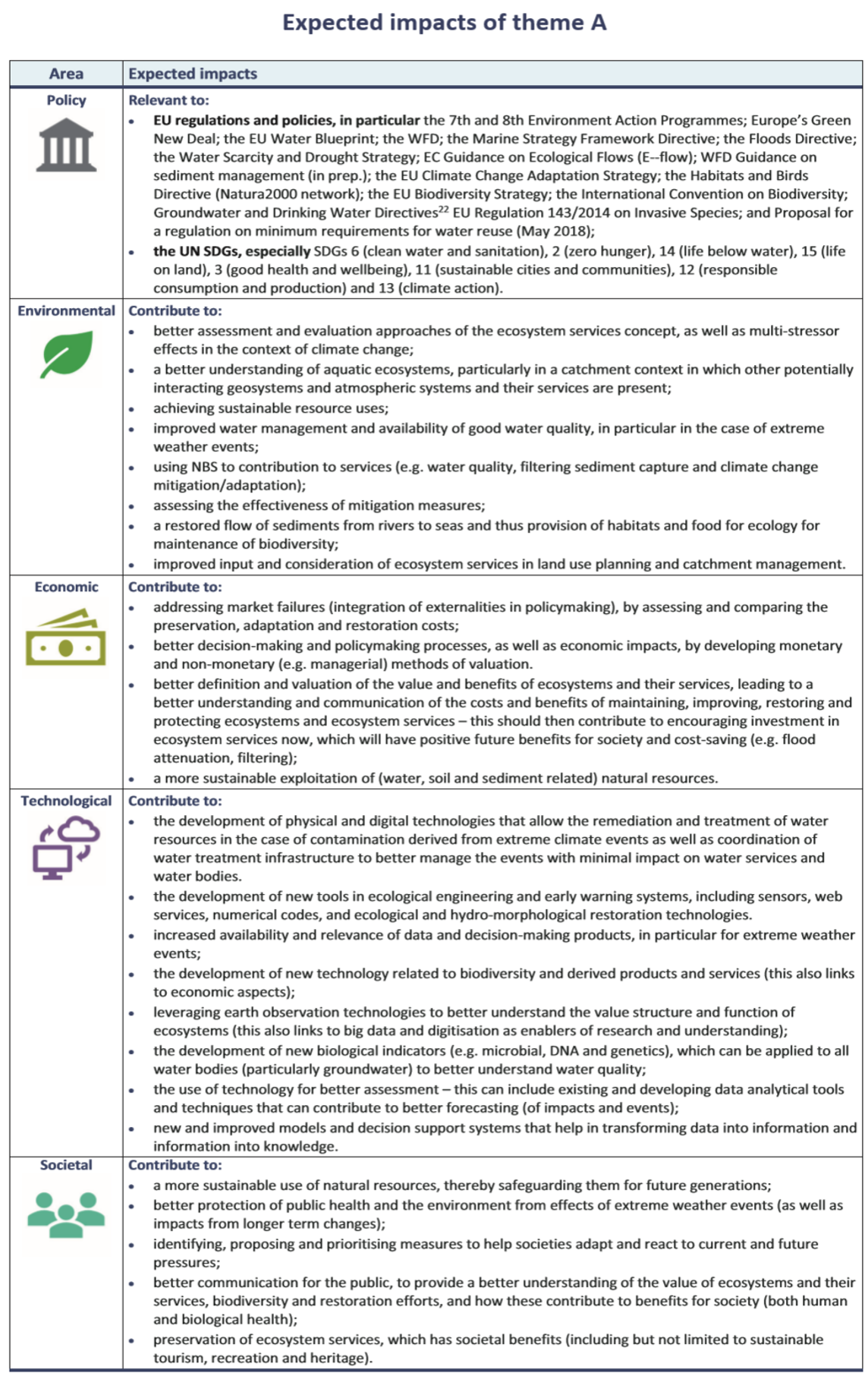SRIA 2025 Theme A - Ecosystems
Ecosystems and ecosystem services play an important role in terms of their biodiversity, mitigating the effects of flood and drought and absorbing and detoxifying pollutants. Ecosystems, which encompass the marine, freshwater and terrestrial environments, provide vital services to humankind, for instance food, timber, flood control, water regulation and purification, pollination, recreation and cultural benefits, and habitats for plants and animals. All ecosystems are linked and maintained by water, providing plants and habitats and breeding grounds for the various species that depend on them. Furthermore, ecosystems serve humans in terms of purification and filtration of water, recreationally and economically. They are a finely tuned process and are susceptible to pressures such as climate change, pollution, water abstraction and the spread of alien species.
A related aspect of ecosystems is the concept of ecosystem “disservices.” These arise in cases in which the interaction between natural systems and humans is negative or has adverse effects; this can negatively affect economic production and human life. Examples include excessive primary productivity (supporting disservice), the proliferation of non-native species (provisioning disservice), offensive-smelling decomposing organic matter (cultural disservice), carbon sinks turning to carbon sources (regulating disservice) and water quality deterioration following landslides or bog bursts19.
Rapid population growth and urbanisation have significantly affected ecosystem services in terms of land use change (i.e. agriculture and urbanisation). Intensive farming practices have contributed to excess nutrients, sediment and chemicals (agri-chemicals) in the environment. Following extreme weather events, excesses of these substances can be washed from farmland into waterways and cause major environmental damage. These factors have contributed to biodiversity loss. Research has also shown that there is a direct correlation between biodiversity and ecosystem services. The IPBES Regional Assessment Report for Europe and Central Asia states that there is a trend towards a decline in biodiversity. This will have consequences for resilient ecosystem services, impacting on, for example, the formation of habitats, the regulation of freshwater quality and quantity, soil formation and flood regulation. According to the report, land use change, climate change and economic growth are considered the key drivers for the loss of both biodiversity and ecosystem services, not only in Europe and Central Asia, but also on a global level. Nonetheless, initiatives such as the SDGs and IPBES highlight not only the deficits regarding biodiversity and ecosystem services but also the achievements in knowledge transfer and policy regulation associated with environmental stewardship. Greater engagement of people with water issues would also lead to an increased awareness of the need to protect water resources and of the value of ecosystem services, as well as including them in national environmental policies and land use planning.
Theme A is composed of:
Sub-theme A.1: Developing approaches for assessing and optimising the structure and function of ecosystem services.
Sub-theme A.2: Developing and applying an approach to ecological engineering and ecohydrology
Sub-theme A.3: Managing and adapting ecosystem services to the effects of hydroclimatic extreme events

